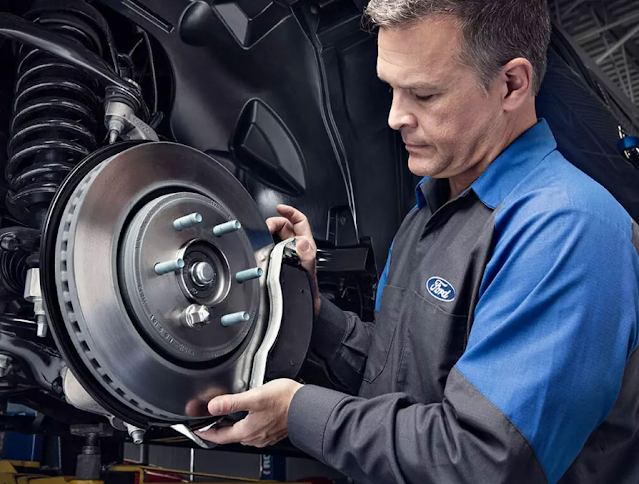Reviving Your Car's Beauty | The Art of Minor Dent Repair
Owning a car brings a sense of pride and joy, but it also comes with the occasional challenge of maintaining its pristine appearance. Minor dents, whether from parking lot mishaps, stray shopping carts, or small collisions, can detract from a car's aesthetic appeal and diminish its resale value. However, with advancements in automotive repair techniques, minor dent repair has become a specialized art that restores your vehicle's smooth contours and factory finish efficiently and effectively.
Understanding Minor Dents
Minor Dent Repair typically refer to small indentations or creases in the car's body panels that do not compromise the structural integrity of the vehicle. These dents are often shallow and can result from low-impact incidents where the paint surface remains intact. Common causes include:
Parking Lot Incidents: Bumps from other car doors or carts.
Hail Damage: Small dents caused by hailstones.
Minor Collisions: Low-speed impacts with stationary objects.
While minor dents may seem insignificant, they can affect the overall appearance of your car and, if left unrepaired, may lead to corrosion and rust over time.
Techniques for Minor Dent Repair
Repairing minor dents requires specialized techniques that vary depending on the size, location, and severity of the damage. Some of the most common methods include:
Paintless Dent Repair (PDR): PDR is a non-invasive technique used to repair minor dents without the need for painting. Skilled technicians use specialized tools to gently massage the dent out from the underside of the panel. This method preserves the original paint finish and can be completed quickly, often in just a few hours.
Traditional Dent Repair: For dents that cannot be repaired using PDR, traditional dent repair techniques may be employed. This involves accessing the backside of the dent, using body filler to smooth out the damaged area, and then meticulously sanding, priming, and painting to blend the repair with the surrounding panels.
Dent Pulling: In cases where the dent has caused stretching or deeper damage to the metal, dent pulling tools such as stud welders and slide hammers are used to carefully pull the dent back into place. This method requires precision to avoid damaging the paint and ensure a seamless repair.
Benefits of Minor Dent Repair
Opting for professional minor dent repair offers several benefits that extend beyond cosmetic improvements:
Preserves Resale Value: Maintaining a dent-free exterior enhances your car's curb appeal and resale value. Potential buyers are more likely to be attracted to a vehicle that looks well-maintained and free of visible imperfections.
Prevents Further Damage: Repairing minor dents promptly prevents moisture and contaminants from seeping into the exposed metal, which can lead to rust and corrosion over time. Protecting the car's structural integrity ensures longevity and reduces the likelihood of costly repairs in the future.
Cost-Effective: Minor dent repair is generally more affordable than extensive panel replacement or full-body repaints. By addressing small dents early on, car owners can save money while maintaining the overall appearance and condition of their vehicle.
Professional Expertise and Precision
Achieving flawless results in minor dent repair requires the skill and experience of trained professionals. Certified technicians have a deep understanding of automotive body structures and use specialized tools and techniques to restore the car's original contours seamlessly. Their attention to detail ensures that repairs are virtually undetectable, preserving the integrity of the car's design and finish.
Environmental Considerations
Many automotive repair shops prioritize environmental sustainability by using eco-friendly practices and materials. This includes opting for water-based paints, minimizing volatile organic compound (VOC) emissions, and implementing recycling programs for waste materials. By choosing environmentally conscious repair services, car owners can contribute to reducing their carbon footprint while restoring their vehicle's appearance.
DIY vs. Professional Repair
While DIY Car dent repair leeds kits are available commercially, they are best suited for very minor dents and require skill and patience to achieve satisfactory results. Attempting complex dent repairs without proper training and tools can lead to further damage and may compromise the car's structural integrity. For optimal results and peace of mind, consulting a professional repair technician is recommended, especially for dents that are deep or located in critical areas of the vehicle.
Looking Ahead: Innovations in Minor Dent Repair
The automotive repair industry continues to innovate with advancements in materials science, digital imaging technology for precise dent mapping, and automated repair systems. These innovations aim to streamline repair processes, reduce turnaround times, and enhance the overall quality of minor dent repairs.
Conclusion
In conclusion, minor dent repair is not just about restoring your car's appearance; it's about preserving its value and protecting its longevity. With a blend of craftsmanship, advanced technology, and environmental responsibility, professional repair services ensure that every dent is meticulously addressed to achieve flawless results. Whether utilizing paintless dent repair for seamless fixes or traditional techniques for more extensive damage, these services uphold the standards of excellence that discerning car owners expect. By investing in minor dent repair, you not only enhance the aesthetic appeal of your vehicle but also safeguard its structural integrity for years of driving pleasure ahead.




Comments
Post a Comment